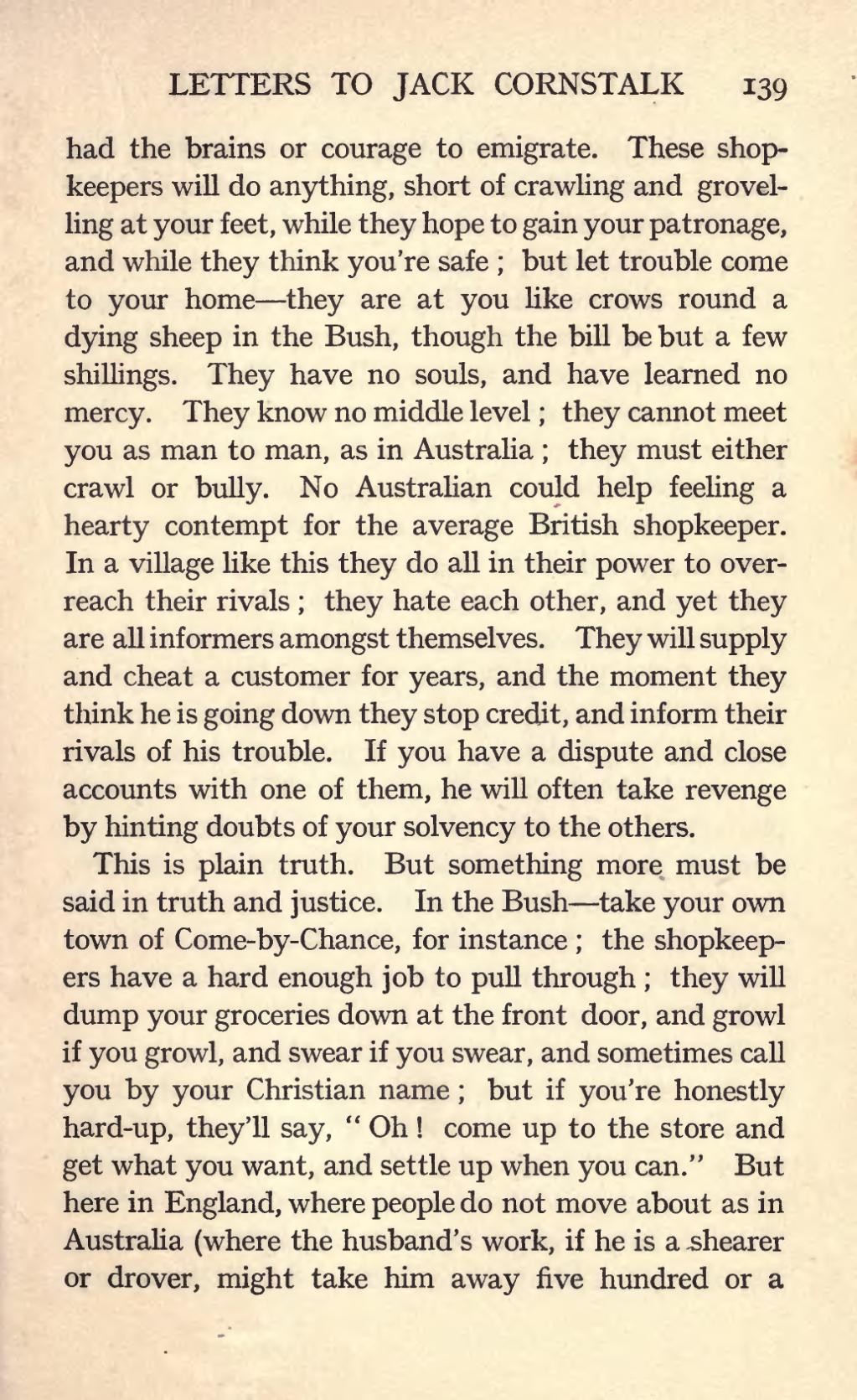had the brains or courage to emigrate. These shopkeepers will do anything, short of crawling and grovelling at your feet, while they hope to gain your patronage, and while they think you're safe; but let trouble come to your home—they are at you like crows round a dying sheep in the Bush, though the bill be but a few shillings. They have no souls, and have learned no mercy. They know no middle level; they cannot meet you as man to man, as in Australia; they must either crawl or bully. No Australian could help feeling a hearty contempt for the average British shopkeeper. In a village like this they do all in their power to overreach their rivals; they hate each other, and yet they are all informers amongst themselves. They will supply and cheat a customer for years, and the moment they think he is going down they stop credit, and inform their rivals of his trouble. If you have a dispute and close accounts with one of them, he will often take revenge by hinting doubts of your solvency to the others.
This is plain truth. But something more must be said in truth and justice. In the Bush—take your own town of Come-by-Chance, for instance; the shopkeepers have a hard enough job to pull through; they will dump your groceries down at the front door, and growl if you growl, and swear if you swear, and sometimes call you by your Christian name; but if you're honestly hard-up, they'll say, "Oh! come up to the store and get what you want, and settle up when you can." But here in England, where people do not move about as in Australia (where the husband's work, if he is a shearer or drover, might take him away five hundred or a
